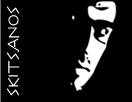XPB! Basic is a true 32 bit compiler. Its amazing feature is the ability to build GUI stand alone EXE in approx. 4Kb. Althought it is not a RAD the working environment is really good. At present it has more than 200 between commands, functions and statements and it is constantly improved and updated. You can also create OBJ and DLL. Recommended.
August 2003 - August 2004. For one year XPB! Basic disappeared from the Net and the official site was down. XPB! Basic has been discontinued under that name by the developer Tony Jones and the compilers's code has passed to Russ of Vortex Effects who planned to continue development under the new name AsmBasiX.
August 2004. Rick Lett, Tony Jones' co-developer of XPB, acquired the rights to continue the developement of AsmBasiX from Russ as he 'was unable to devote the time required to get AsmBasiX available for the public'. Rick Lett called AsmBasix back to its original name XPB! Basic. Russ reports that 'the person taking over development is very committed to see this product continue'. Thanks James and thanks Michalis.November 2004. XPB!Basic has again been abandoned. Many forums that I read, report that the project has been discontinued by the end of October 2004.
The last programmer who had XPB!Basic in his hands is Rick Lett but its
official site is down.
Previously he had an other
official site but he removed all the pages about the language around 21/22 October 2004. The forum linked above talks about Rick, but as you may see from the email of Tony Jones he was the owner of the outcastprogramming.com site. From the 22nd of October till the end of 2004 a message 'Due to technical problems OutCastProgramming will be unavailable for about a week' was the only thing displayed by the site. Now the site offers some general information about programming with FBSL (Free Basic script language). It seems that Rick Lett sold some copies of his new version of XPB!Basic without informing Tony that XPB will be made public again and in so posting the new update at OutcastProgramming, claiming sole merit for its re-release. The new version had only few improvements. This created the conflict between the two and has led to the shutdown of XPB again. The registered users were abandoned and all support stopped.
XPB! Basic is hard to find, but thanks to Jonathan, here you can download a 'rare' copy of version 1.12 and version 1.17.
Download #1:
http://basic.mindteq.com/download/XPBBasic112.exeDownload #2:
http://basic.mindteq.com/download/XPBBasic117.exe
